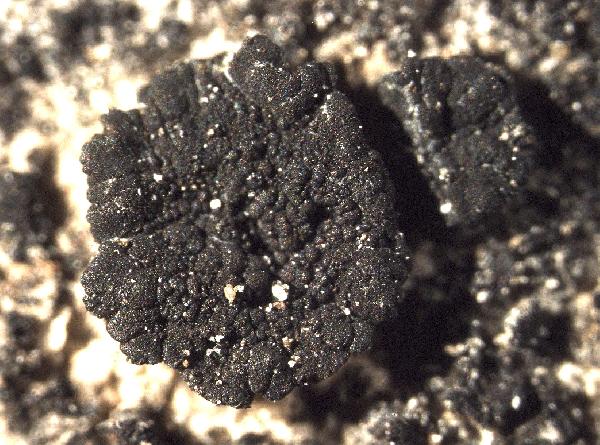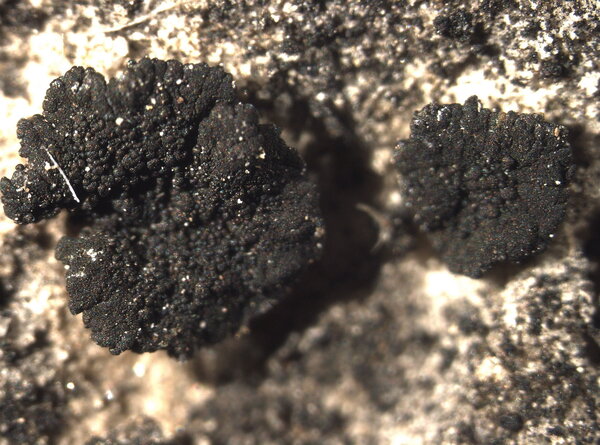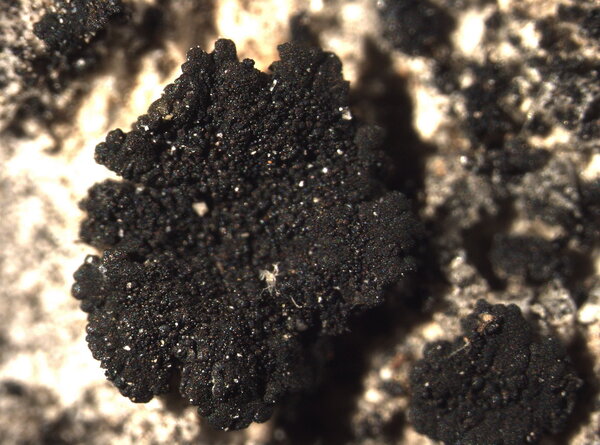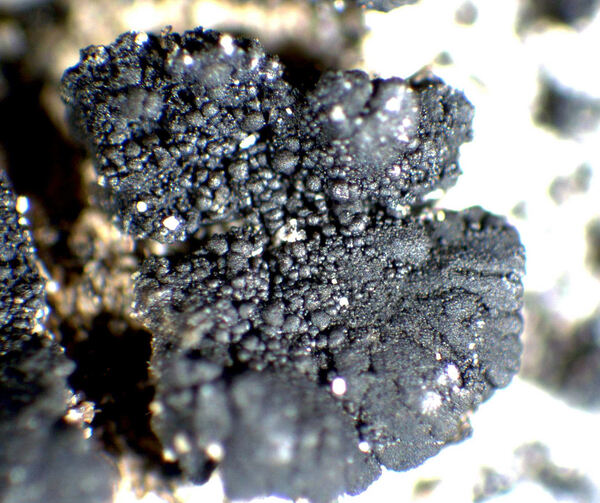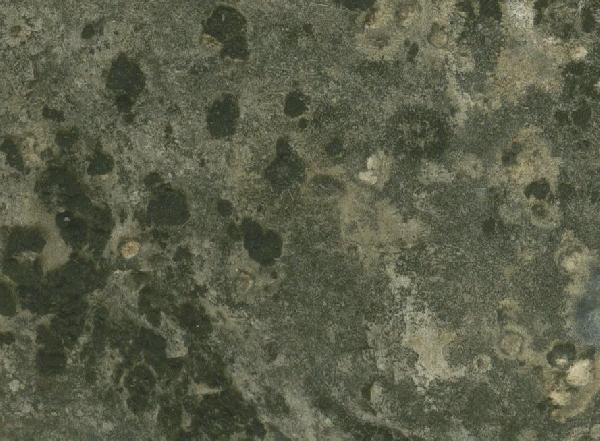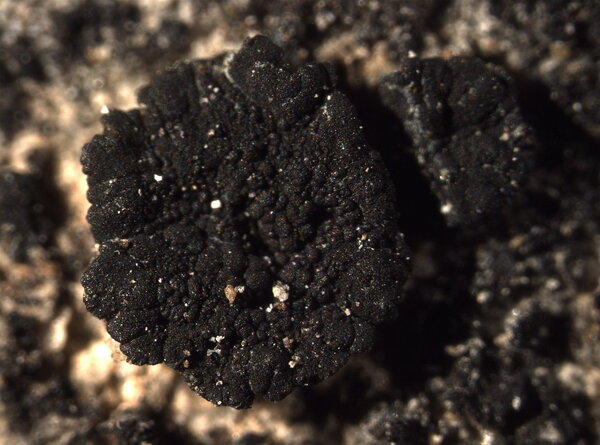Anema moedlingense Zahlbr.
Cat. Lich. Univ., 2: 801, 1902.
Synonyms:
Description: Thallus squamulose, homoiomerous, slightly gelatinous when wet, in section with a loosely reticulate network of thin hyphae enclosing groups of cyanobacterial cells. Squamules erect, peltate, brown-black to black, rather shiny, dispersed to crowded, up to 3 mm thick, 1-8 mm in diam., often richly and reticulately fissured, epruinose, not isidiate, attached by a holdfast of rhizohyphae, the margin crenulate or weakly lobulate. Apothecia pycnoascocarps, 5-9 per squamule, immersed in the thallus, at first punctiform then expanded and clearly lecanorine, 0.2-1 mm across, with a dark reddish brown, initially urceolate then flat disc, and a thick, smooth thalline margin. Proper exciple poorly developed; epithecium orange-brown, 5-10 µm high; hymenium colourless, 60-100 µm high, the hymenial gel I+ blue; paraphyses stout, to 5 µm thick, simple or sparingly branched, moniliform in upper part; hypothecium yellowish, 30-90 µm high in central part. Asci 8-spored, broadly clavate, thin-walled, with a distinct amyloid outer cap, but no apical dome, Peccania-type. Ascospores 1-celled, hyaline broadly ellipsoid or subglobose, 9-14 x 7-10 µm, the wall 1-2 µm thick. Pycnidia globose, 70-100 µm wide, immersed, unilocular. Conidia ellipsoid or bacilliform, 2-4 x c. 1.5 µm. Photobiont cyanobacterial, chroococcoid, of a few, 7-12 µm wide cells often penetrated by haustoria and surrounded by a gelatinous sheath which is colourless in inner parts, yellowish brown near the thallus surface. Spot tests: all negative. Chemistry: without lichen substances.
Growth form: Crustose
Substrata: rocks
Photobiont: cyanobacteria, coccaceous (e.g. Gloeocapsa)
Reproductive strategy: mainly sexual
On otherwise dry surfaces with short periods of water seepage after rain
Commonnes-rarity: (info)
Alpine belt: absent
Subalpine belt: absent
Montane belt: rare
Dry submediterranean belt: rather common
Humid submediterranean belt: rather rare
Padanian area: extremely rare
pH of the substrata:
1 2 3 4 5
Solar irradiation:
1 2 3 4 5
Aridity:
1 2 3 4 5
Eutrophication:
1 2 3 4 5
Poleotolerance:
0 1 2 3
Altitudinal distribution:
1 2 3 4 5 6
Rarity
absent
extremely rare
very rare
rare
rather rare
rather common
common
very common
extremely common
Loading data...
Occurrence data
Predictive map
Growth form: Crustose
Substrata: rocks
Photobiont: cyanobacteria, coccaceous (e.g. Gloeocapsa)
Reproductive strategy: mainly sexual
On otherwise dry surfaces with short periods of water seepage after rain
Commonnes-rarity: (info)
Alpine belt: absent
Subalpine belt: absent
Montane belt: rare
Dry submediterranean belt: rather common
Humid submediterranean belt: rather rare
Padanian area: extremely rare
pH of the substrata:
| 1 | 2 | 3 | 4 | 5 |
Solar irradiation:
| 1 | 2 | 3 | 4 | 5 |
Aridity:
| 1 | 2 | 3 | 4 | 5 |
Eutrophication:
| 1 | 2 | 3 | 4 | 5 |
Poleotolerance:
| 0 | 1 | 2 | 3 |
Altitudinal distribution:
| 1 | 2 | 3 | 4 | 5 | 6 |
Rarity
absent
extremely rare
very rare
rare
rather rare
rather common
common
very common
extremely common
Loading data...
Occurrence data
Predictive map


